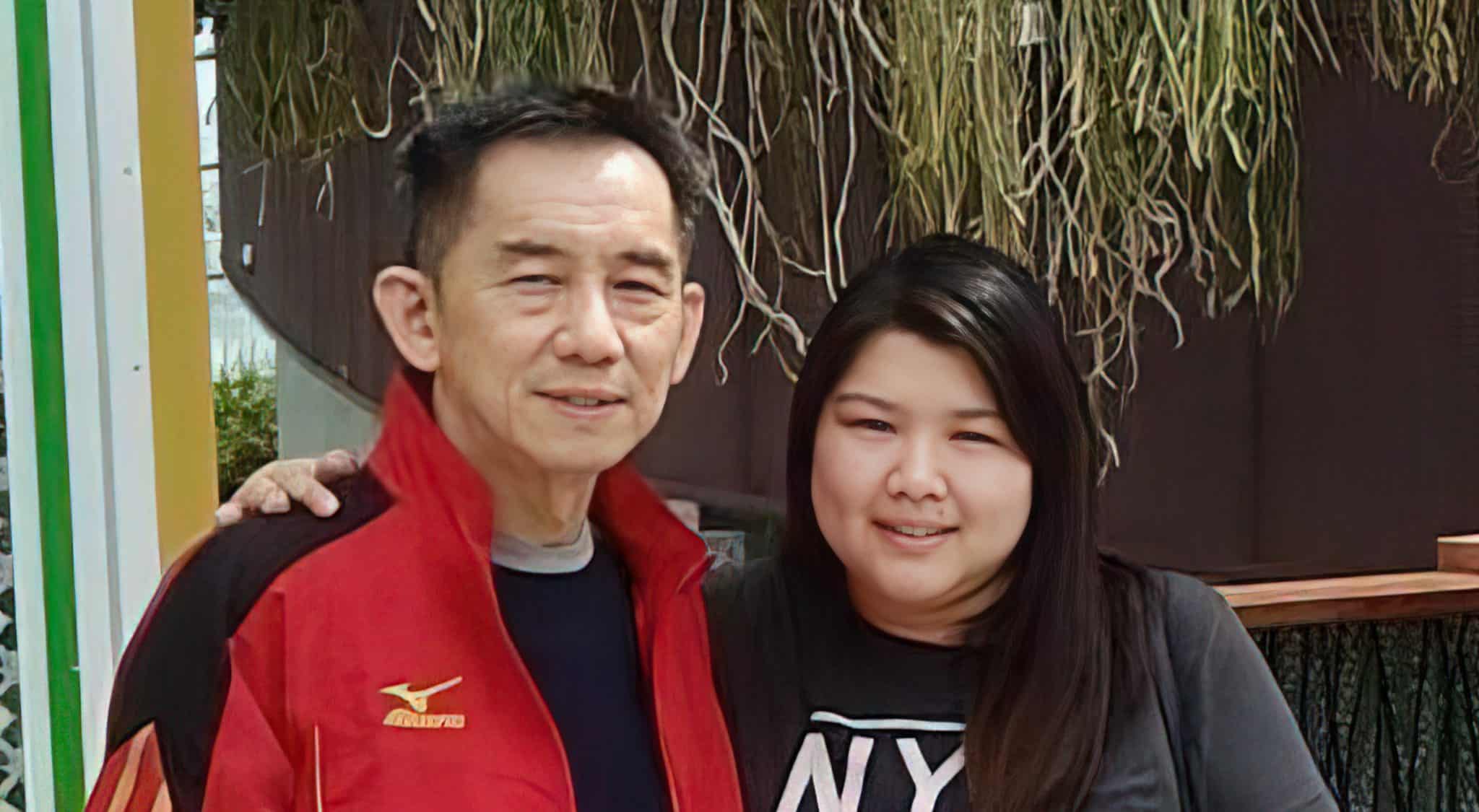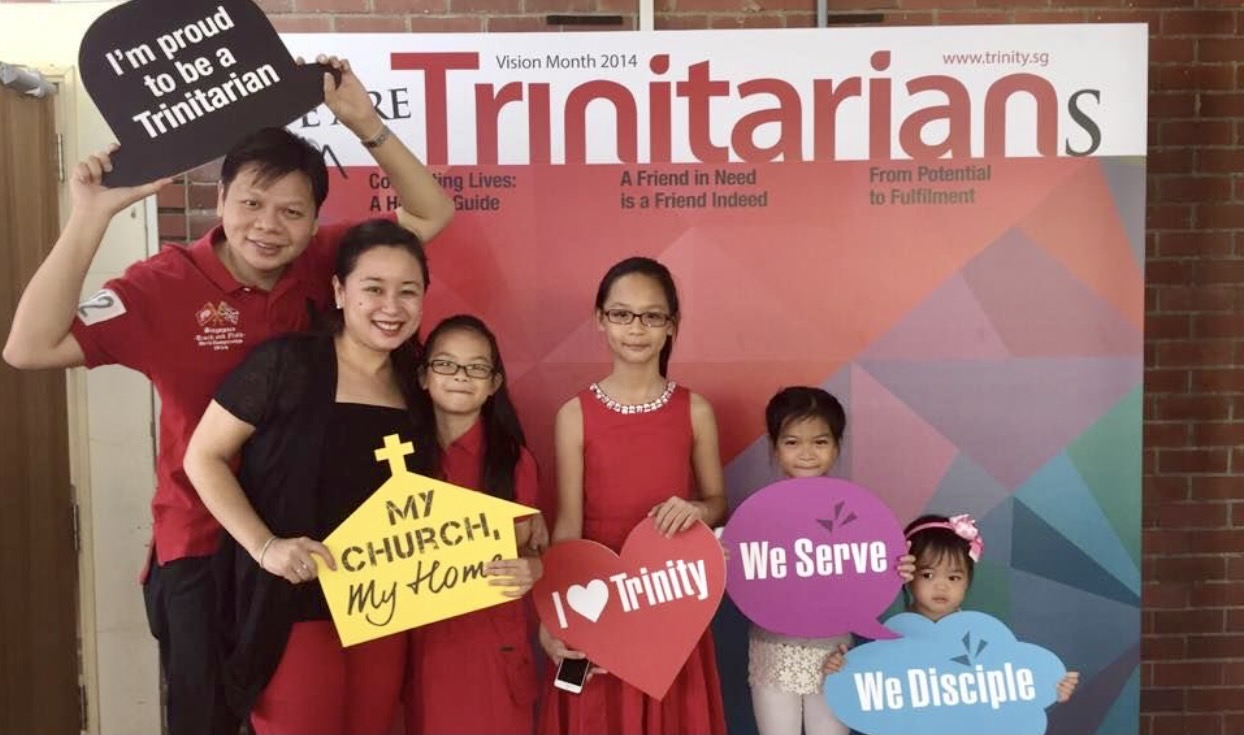“So thankful!” Founder of widow support group never expected to utter those words again after she lost her husband
Christine Leow // September 11, 2020, 6:43 pm
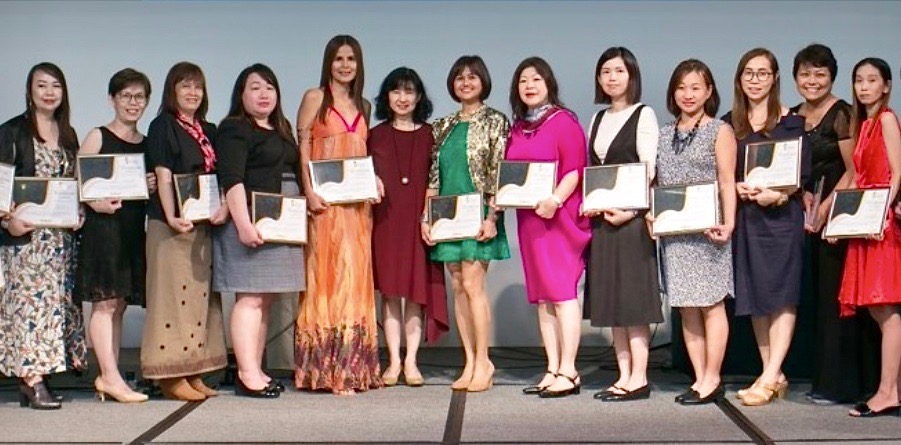
A tragic accident took away her husband but Joyce Lye (centre, in red) turned her loss into a blessing to others through widow support group, Wicare, which marked its 20th anniversary in 2018. All photos courtesy of Joyce Lye.
Joyce Lye never imagined that her life would have turned out the way it had.
She never imagined she would be the founder of Wicare, Singapore’s only widow support group. She never imagined she would have to share her story again and again to hundreds of grieving women. She certainly never imagined she would be a widow.
Yet, she has lived it all. And more. The journey has been tough. But, at 68, Lye says she is “so thankful” to have undertaken it.
“God could have called anyone. Yet he chose someone who had nothing – in terms of cash, talent and resources,” said Lye.
“There are so many other people who are more highly talented but He started with somebody who had none of the talents. But I am so thankful I said ‘yes’.”
One slippery road
The path that led Lye to helm Wicare began quite innocuously with a drive to have supper. Her husband George was at the wheel. Along Holland Road, her life changed forever.
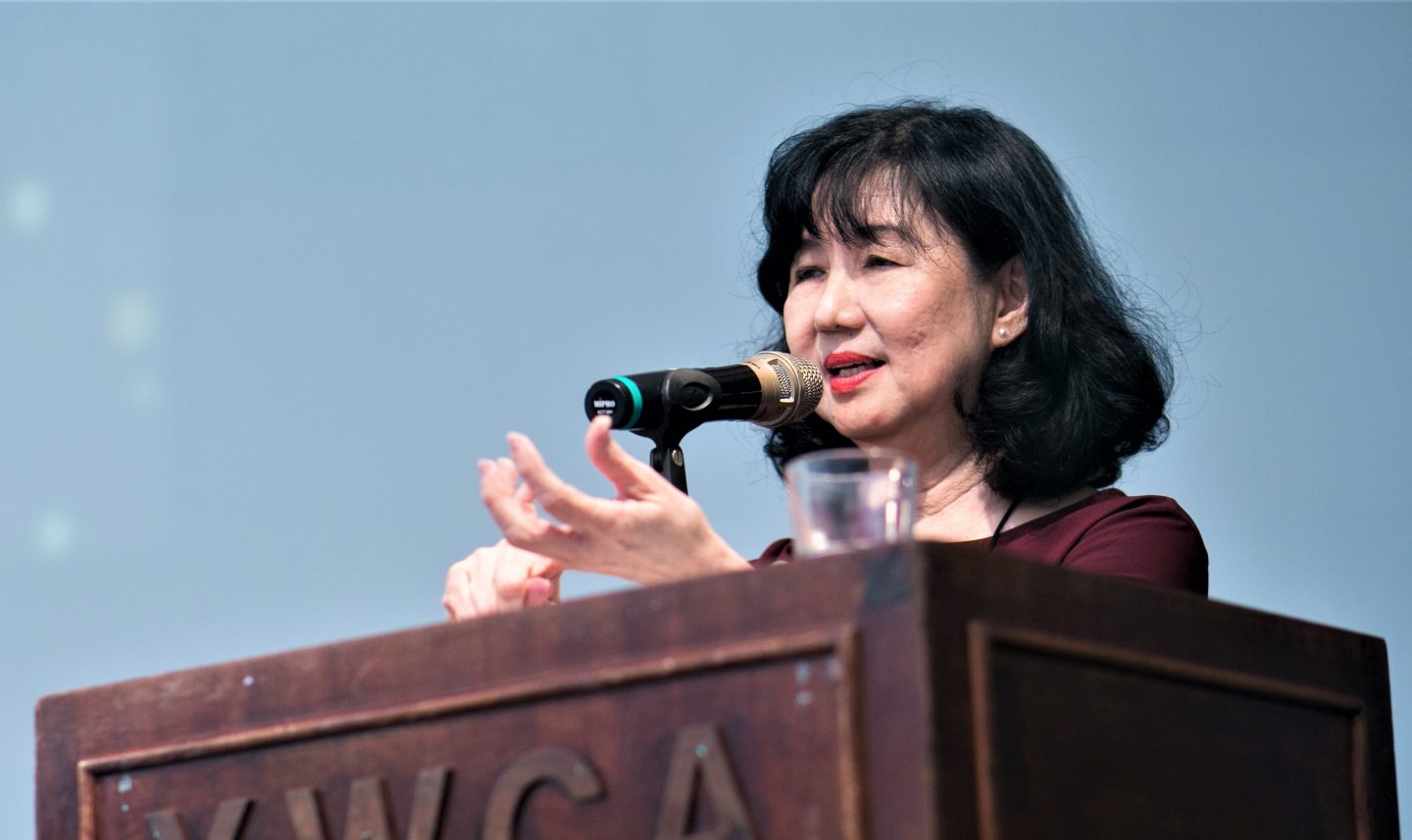
When Lye opened a Bible that a friend had given to her, the verse she immediately saw was 1 Timothy 5, that talked about the widows who were really in need of God. “I was so shocked,” said Lye, who gave her life to Jesus that very night.
“The road was wet. The car skidded, hit the curb and was flung to the other side of the road,” Lye recounted.
“It turned turtle and about three or four other cars toppled on top of our car.”
“God could have called anyone. Yet he chose someone who had nothing.”
Her husband died instantly. Lye was so badly hurt that she remained in a coma for three days. The doctors did not think she would pull through. But she did.
“There were patches of blue-black all over my body. They stayed with me for long time.
“I also had deep cuts. And for a while, there was a hole at the back of my head because no hair would grow over the injury.”
By the time she woke from her coma, her husband’s funeral was over and Lye was left to raise her two little girls, then aged three and 14 months, all on her own.
Angry and alone
Her initial reaction to the loss was not just one of grief.
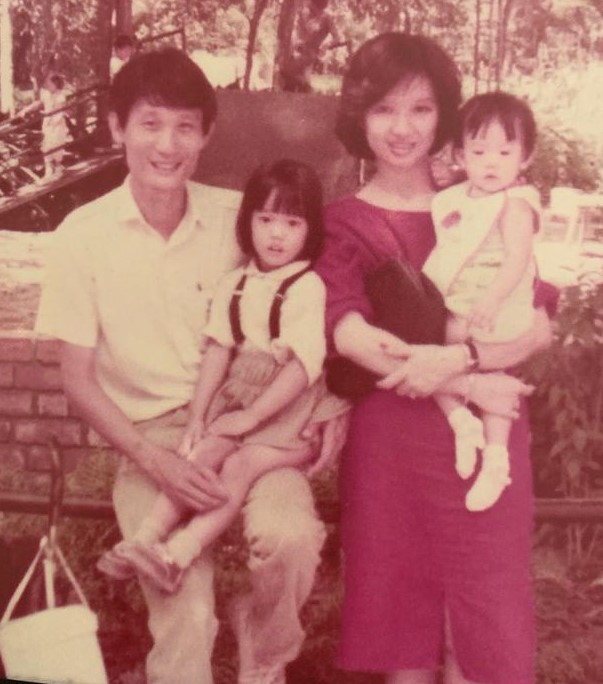
Joyce and her husband George were driving along Holland Road when their car skidded and flipped on the wet road.
“I was very angry, very angry. I kept asking, ‘Why did this happen? You know, my children were so young.’ I cried every night, hoping that he would come back, still wanting him to walk through the door.”
“I told them: ‘If God is so Almighty, why didn’t He stop the accident?’”
She descended into depression while her daughters bore the brunt of her emotions.
“I couldn’t cope. I would get irritated very easily. The children would cry every moment, ‘Mommy, Mommy!’
“I felt it was so unreasonable, I felt so lost. I would beat them, scold them, push them away really hard when I got angry. They would fly from one corner to the other side of the wall.”
She isolated herself, shunning well-meaning family and friends. “Even when they called, I would just bang down the phone.”
And she ranted at a God she did not yet believe in. “I told Christians, ‘If God is so Almighty, why didn’t He stop the accident?’
“If I am not a good mother, punish me. Don’t punish my children by making them fatherless.”
Real world woes
Beyond the pain of losing her husband, Lye was also deeply anxious about being a single parent. Her in-laws were grieving the loss of their son and her family lived in Sabah, Malaysia.
“Managing two kids at one time was tough. I had to work, then I had to come back for the kids. I was so tired.
“Once I even had fainting spells and dizziness. I remember calling my mum in Batu Bahut and telling her to call me in the morning just in case I died.”
“Even though daddy is not here, mummy will work hard to make sure that there is enough for us.”
All the things her husband used to manage fell on her shoulders. But it was the little things that made his absence more deeply felt.
“When lights didn’t work or the electrical items were spoilt, we had to sit down and think how to make it work.
“I didn’t like to call the plumber or other men because I didn’t want them to know that we three girls were alone at home. I was so scared that people would take advantage of me. There was that fear.”
Lye also felt she had to be both mother and father to her girls.
“I had to show them the kind of attire men wear, talk to them a lot about dad – what dad was like, dad liked to play chess, dad liked cars. I told them about the manly things.
“I would tell the children, ‘Even though daddy is not here, mummy will work hard to make sure that there is enough for us’.”
“After I put my kids to bed, I would knock on doors to ask people if they wanted to buy insurance.”
And work hard she did. The once double-income family was reduced to nearly no income at all. Lye could not manage the floral shop she owned. So, she closed it down. To make ends meet, she made handicrafts to sell and tried her hand at selling insurance.
“After I put my kids to bed, read the usual bedtime stories to them, I would go to the HDB flats and knock on every door to ask people if they wanted to buy insurance,” said Lye.
What kept her going were the memories of her husband and the admiration he had for her as a mother.
“I realised one very important thing. He always told his friends I’m one of the most wonderful mothers he had ever seen.
“So, I tried to live up to his dreams. I wanted to be the best mother that he thought that I was.”
A widow among widows
That, however, was not the end of Lye’s story. Nearly a year after the accident, her life would change once more.
“It was like the verse was talking to me. I really cried and I knelt down and I gave my life to Jesus.”
“A friend had given me a Bible. One night I happened to open it. It was just one turn and it fell on 1 Timothy 5, that talked about the widows who were really in need of God, who prayed day and night to ask God for help.
“I was so shocked. It was like the verse was talking to me. I really cried and I knelt down and I gave my life to Jesus, just like that. I told him: ‘The old things have gone, new things have come.’
“I couldn’t wait to wake my two girls up to hug them because I had been very ugly to them during the past 10 months. I would scold them and beat them for nothing,” said Lye.
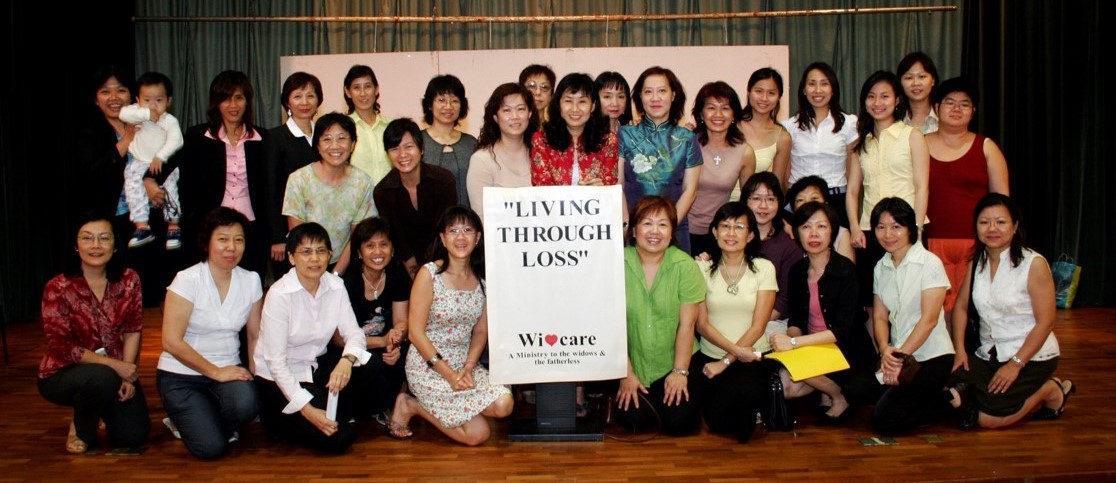
Lye never expected she would be called to minister to other widows. Yet, God was faithful and in 2003, Wicare held its first public forum “Living Through Loss”.
That was just the start. She found herself a church through the Yellow Pages and even joined the prayer meetings.
Too poor to afford much, she bought one ice kachang for all five of the them to share.
It was at a prayer meeting that the words “a widow among widows” flashed before her one day. Lye, then only in her 30s, still had hopes of re-marrying. So, she did not pursue the prompting.
The years passed. She forgot the word given. But God did not.
Lye found herself encountering widows even when she did not want to. A friend asked her to talk to a woman who had recently been widowed.
Still hurting, Lye did not have the courage to relive her pain. “I just couldn’t bring myself to meet the woman.”
Then came another request to speak to yet another widow. Then, another and another. When it was clear she could no longer avoid meeting the women, Lye relented and arranged a tea session at a coffeehouse. Too poor to afford much, she bought one ice kachang for all five of the them to share.
“I began to see them sharing their struggles and laughter and I said: ‘It really works’.”
“When they looked at one another, they began to pour out their struggles. One widow shared about handling a kid who had a handicap, how she would get angry because, as if it was not bad enough being a widow, she now had to manage a child with a handicap.
“Then this lady shared how her husband died when she was pregnant with her second kid. She talked about her pain. Then the other one said her two kids were so young when her husband died in Penang.
“I began to see them sharing their struggles and laughter, and I said, ‘It really works. They long for other meetings. They can get connected’.”
That modest meeting in 1993 was the genesis of Wicare.
Then God brought people
The women would continue to meet informally until Lye met Joan Swee, who had lost her husband to cancer just a few years earlier.
“I was attending a Bible Study Fellowship. She was attending another one when she heard that I had a widow support group.
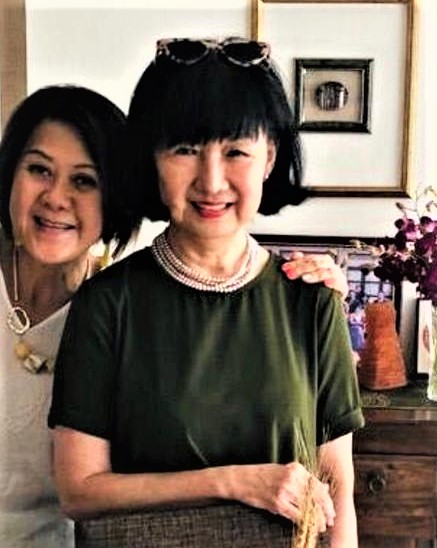
Joan Swee (left) and Lye would work together at Wicare for nearly two decades.
“She barged into my class, gave me her name card and asked me to contact her,” Lye remembered with a smile.
It took Lye two weeks to get back to Swee because “there were so many widows that God had sent to me”.
“She was so upset,” Lye admitted.
“Just put a widow next to another and there is healing. They understand one another.”
It was at the meeting in Swee’s kitchen that they decided to organise the ad hoc meeting of widows into a formal organisation.
In 1996, Wicare Support Group was established and the first management committee was formed. Two years later, they registered as a Volunteer Welfare Organisation (VWO)
Lye calls it “all very amazing” because Swee’s expertise as an organiser extraordinaire was just what was needed to get Wicare off the ground. As a trainer, Swee knew how to plan things.
Slowly, God brought more widows into the core team.
“The Lord really showed Himself strong in my life. I am surrounded by people who are talented in so many ways,” said Lye.
Then, God brought the hurt and wounded women.
“Most of the women came to us by word of mouth. Churches and friends would recommend them to us because they thought I could counsel them.
“Actually, there is no need to counsel. Just put a widow next to another and there is healing. They understand one another. They have similar backgrounds.”
A place of belonging and healing
This year, the place of belonging and healing for widows celebrates its 22nd anniversary.
Through self-help programmes and workshops on topics such as widowhood, coping with grief, single-parenting, financial management, and remarriage, they have helped over a thousand widows.
Many of the children in the bereaved families have also benefitted from Wicare’s counselling, courses and bursary programmes.
But the going has always been tough because theirs was a modest set-up.
“All this while, we were run by one person and the Board. There was no way we could do more.”
A few years ago, something entirely unexpected happened that gave Wicare a boost. Lye sees it as the clear hand of God’s providence.
“With NCSS’ grant, God enlarged our tent. We really shudder and tremble when we see how good God is.”
The National Council of Social Services (NCSS) asked to work with them to reach out to widows. NCSS had wanted to help the elderly. In a survey they did, they had found that single women aged 50 and above as well as widows were the least served in society.
“With NCSS’ grant, God enlarged our tent. We really shudder and tremble when we see how good God is.”
Now, Wicare has six employees in their office, two of whom are full-time staff who are also widows. They also have a new programme developed with NCSS called Wishine, tailored specially for senior widows 50 and above as well as a Mandarin spinoff.
Wicare has also been able to provide warm meals to widows during the Circuit Breaker.
“They are lonely. So, we thought warm food would brighten them up.”
The Lord who provides
In the last few decades, there have also been several moments that have brightened Lye’s life.
“The calling is very painful. It has never been easy. But God provides.”
In 2008, just as Wicare turned 10, she was given the Shine on Singapore Award by Rotary International which honours unsung heroes. The next year, she was awarded The President’s Social Service Award in the Individual Category.
The years of “operating Wicare from home at the expense of family life” have all borne fruit. She has walked with many who see her as role model, though Lye is modest: “They actually made me stronger. They are the ones who changed me. In fact, I’m humbled.”
Her daughters – now aged 39 and 38 – are grown up and have nothing but praise for her love and devotion.
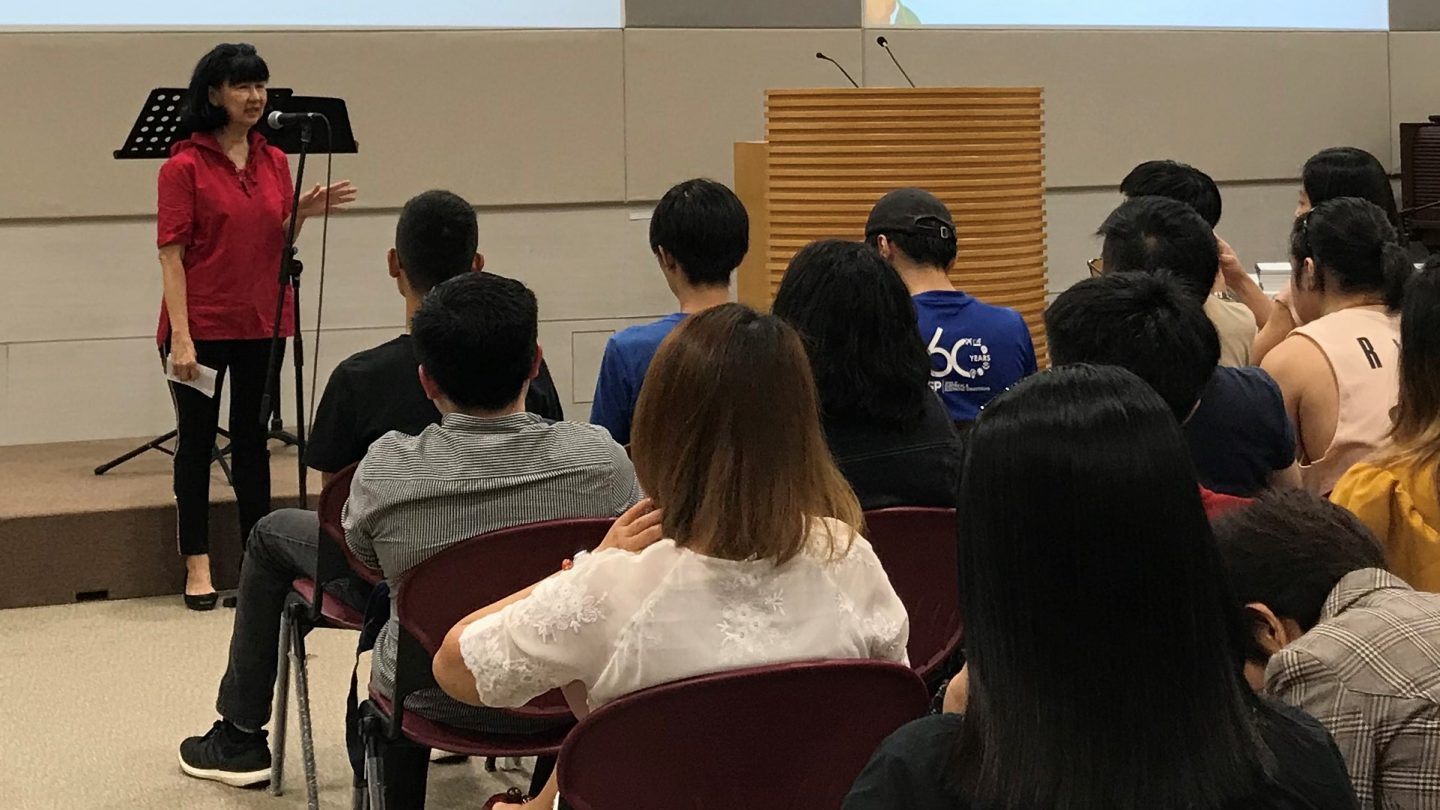
Lye addressing members and their children at Wicare’s annual Education Performance Awards presentation in 2020.
She is even a grandmother to a little girl, aged seven, and a little boy, aged five.
“The calling is very painful,” Lye said. “It has never been easy. But God provides.”
Would you let your daughter go to Congo and Rwanda? “It’s our honour,” say this missionary’s parents
Business down by up to 97%, yet these restaurant owners are still giving to the community
We are an independent, non-profit organisation that relies on the generosity of our readers, such as yourself, to continue serving the kingdom. Every dollar donated goes directly back into our editorial coverage.
Would you consider partnering with us in our kingdom work by supporting us financially, either as a one-off donation, or a recurring pledge?
Support Salt&Light
